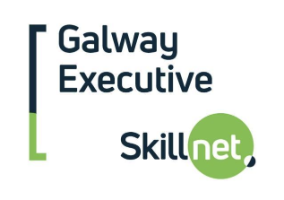-
Courses

Courses
Choosing a course is one of the most important decisions you'll ever make! View our courses and see what our students and lecturers have to say about the courses you are interested in at the links below.
-
University Life

University Life
Each year more than 4,000 choose University of Galway as their University of choice. Find out what life at University of Galway is all about here.
-
About University of Galway

About University of Galway
Since 1845, University of Galway has been sharing the highest quality teaching and research with Ireland and the world. Find out what makes our University so special – from our distinguished history to the latest news and campus developments.
-
Colleges & Schools

Colleges & Schools
University of Galway has earned international recognition as a research-led university with a commitment to top quality teaching across a range of key areas of expertise.
-
Research & Innovation

Research & Innovation
University of Galway’s vibrant research community take on some of the most pressing challenges of our times.
-
Business & Industry

Guiding Breakthrough Research at University of Galway
We explore and facilitate commercial opportunities for the research community at University of Galway, as well as facilitating industry partnership.
-
Alumni & Friends

Alumni & Friends
There are 128,000 University of Galway alumni worldwide. Stay connected to your alumni community! Join our social networks and update your details online.
-
Community Engagement

Community Engagement
At University of Galway, we believe that the best learning takes place when you apply what you learn in a real world context. That's why many of our courses include work placements or community projects.
Management (Diploma)
Course Overview
The Diploma in Management is aimed at students who seek a management qualification to develop their careers. Students will be equipped with key concepts, knowledge and skills to enable them to embark on a career in management. Graduates may be employable in a range of industries and sectors.
Mode of Study: Online Learning

This course has been approved by Galway Executive Skillnet for a fees subsidy of up to 40% for students whose company is a member of their network. For more information, contact:
Galway Executive Skillnet – Eamonn Molloy at: info@galwayexecutiveskillnet.com
Applications and Selections
Applications are made online via the University of Galway Applications System. This course is listed under Adult Learning Undergraduate\Postgraduate, CPD, Micro-credentials & Summer School Applications.
Please visit our How to Apply page for Application tips and Supporting Documents information.
Who Teaches this Course
Requirements and Assessment
All modules in the Diploma are individually assessed. Modules are assessed by a combination of written assignments, online activities and block release workshops during the semester.
Key Facts
Entry Requirements
Entry requirements for part-time students can be found here (i.e. age, English language requirements etc.). There are no specific entry requirements for the Diploma in Management but applicants should possess a good level of computer literacy.
*If you are under 21 you will be asked to fulfil the matriculation requirements for University of Galway.
Additional Requirements
Recognition of Prior Learning (RPL)
Duration
2 years, part-time
Next start date
TBC
A Level Grades ()
Average intake
30
QQI/FET FETAC Entry Routes
Closing Date
NFQ level
7
Mode of study
Online Learning
ECTS weighting
30
Award
Diploma
CAO
Course code
Course Outline
The modules in this Diploma provide a solid foundation in the principles and practice of effective management. This Diploma is ideal for students who wish to:
- Understand the principles of contemporary management
- Enhance their leadership capability
- Understand management’s role in achieving organisational outcomes and success
- Develop their critical thinking, analysis and decision making skills
- Understand the role of organisational psychology and behaviour in organisational effectiveness
- Develop essential negotiation and management skills
- Apply this knowledge to a wide range of organisational settings
Course Delivery
The course is delivered fully online through a combination of:
- Podcasts
- Screenshots (a digital recording of computer screen output)
- Live online lectures
- Reading material and assignments
- Online discussion
- One three-day, online workshop in Year 1
There are six modules on offer within the diploma structure. Students are required to complete three modules each year.
Curriculum Information
Curriculum information relates to the current academic year (in most cases).Course and module offerings and details may be subject to change.
Glossary of Terms
- Credits
- You must earn a defined number of credits (aka ECTS) to complete each year of your course. You do this by taking all of its required modules as well as the correct number of optional modules to obtain that year's total number of credits.
- Module
- An examinable portion of a subject or course, for which you attend lectures and/or tutorials and carry out assignments. E.g. Algebra and Calculus could be modules within the subject Mathematics. Each module has a unique module code eg. MA140.
- Optional
- A module you may choose to study.
- Required
- A module that you must study if you choose this course (or subject).
- Semester
- Most courses have 2 semesters (aka terms) per year.
Year 1 (15 Credits)
RequiredMG1001: Contemporary Management Thought
MG1001: Contemporary Management Thought
Semester 1 | Credits: 5
The primary objectives of this course are as follows:
- To introduce you to the key tasks of management: planning, leading, organising, and controlling
- To examine the challenges of modern management; entrepreneurship, ethics and corporate responsibility, managing change
- To provide an understanding of the management of different types of organisations in different business and global contexts
(Language of instruction: English)
Learning Outcomes
- Understand the key functions of management and the manager
- Have an understanding of the various contexts in which managers operate, and how these contexts affect the management function
- Have an appreciation for the challenges faced by mangers in contemporary times.
Assessments
- Department-based Assessment (100%)
Teachers
The above information outlines module MG1001: "Contemporary Management Thought " and is valid from 2019 onwards.Note: Module offerings and details may be subject to change.
RequiredMG7102: Leading and Managing People
MG7102: Leading and Managing People
Semester 1 and Semester 2 | Credits: 5
This course provides a solid foundation to the study of Leading and Managing People. The material delivered and presented highlights the practicality of the issues involved in work and employment, and specifically in managing and leading people. People management is essentially about leading and managing people in a way that both maximises and rewards the contribution each individual makes in the organisation. This course introduces content such as recruitment and selection of employees, how to reward, employment terms and conditions, leading and developing talent, international HRM, and other facets of managing the employment relationship.
(Language of instruction: English)
Learning Outcomes
- Describe the main functions of the People Management function, including identification of the key activities and theoretical basis of HRM
- Discuss employee resourcing and development, including planning, recruitment and selection, and rewarding employees
- Evaluate the employment relationship, including equality in the workplace, learning and development, and employee wellbeing.
- Develop understanding of leading people in an international context, and the corporate social responsibility of the organisation.
Assessments
- Continuous Assessment (100%)
Teachers
Reading List
- "Human Resource Management: A Concise Introduction" by Carbery, R., & Cross, C.,
ISBN: 9781137009395.
Publisher: Palgrave Macmillan
Note: Module offerings and details may be subject to change.
RequiredMK8104: Negotiation Skills
MK8104: Negotiation Skills
Semester 2 | Credits: 5
Negotiation is a dialogue to discover common ground among parties with differing aims, needs and perspectives in order to achieve a solution that as far as possible meets people's interests. It is a process by which parties pursue a mutually acceptable outcome, which typically involves elements of creativity and compromise. Negotiation Skills explore how two or more parties with competing interests discuss and manage issues so as to attain an agreement, settle a matter of mutual concern, or resolve a conflict. Negotiation is a valuable leadership and management skill, which is employed in a wide range of business contexts, such as contracts, deal-making, employment discussions, team building and disputes. Negotiations occur in commercial, non-profit and governmental organisations.
(Language of instruction: English)
Learning Outcomes
- Comparing distributive and integrative negotiations, as well as identifying the sub-process of negotiations.
- Distinguishing between interests and positions, as well as outlining the elements of principled negotiations.
- Applying active listening techniques and investigating the joint outcome space through BATNA, ZOPA and anchoring.
- Exploring the agent-client dynamics in negotiations and crafting solutions via standards and persuasion.
- Managing hardball tactics and non-engagement, as well as identifying ethical issues in negotiations.
Assessments
- Continuous Assessment (100%)
Teachers
Reading List
- "Getting to Yes: Negotiating Agreement Without Giving In." by Fisher, R & Ury, W.
ISBN: 13: 978-18479.
Publisher: Random House Business. - "Difficult Conversations: How to Discuss What Matters Most" by Stone, D, Patton, B & Heen, S.
ISBN: 13: 978-06709.
Publisher: Viking Reissue
Note: Module offerings and details may be subject to change.
OptionalRPL005: Recognised Prior Learning
RPL005: Recognised Prior Learning
Semester 1 and Semester 2 | Credits: 5
Assessments
- Continuous Assessment (100%)
Note: Module offerings and details may be subject to change.
Year 2 (15 Credits)
RequiredMK7109: Critical Thinking
MK7109: Critical Thinking
Semester 1 and Semester 2 | Credits: 5
The module will introduce learners to the concept of critical thinking and its associated skills and applications. Participants will learn about the basic concepts of critical thinking, what it means to think critically, how to think critically and why critical thinking competence is valuable. It will endeavour to build the necessary critical thinking skills required for academic research.
(Language of instruction: English)
Learning Outcomes
- Describe skills and dispositions associated with critical thinking
- Evaluate the structure, strengths and weaknesses of arguments, with respect to their credibility, relevance, logical strength, balance and bias
- Draw reasonable conclusions through the gathering of credible, relevant, logical and unbiased information
- Apply critical thinking skills to real-world tasks such as: argumentation, verbal reasoning, hypothesis testing, judging likelihood and uncertainty, and problem-solving
Assessments
- Department-based Assessment (100%)
Teachers
Reading List
- "Critical thinking skills. New York:" by Cottrell
ISBN: ISBN023028529.
Publisher: Palgrave MacMillan
Note: Module offerings and details may be subject to change.
RequiredMG8103: Organisational Psychology and Analysis
MG8103: Organisational Psychology and Analysis
Semester 1 | Credits: 5
The behaviour of individuals is the workplace is affected by a range of individual, group, and organisational factors which in turn impact on a range of outcomes at different levels. The purpose of this module is to provide students with an understanding of why people behave the way they do in organisations and at work to give students the knowledge of how human behaviour affects organisational functioning.
(Language of instruction: English)
Learning Outcomes
- Identify the major behavioural science disciplines that contribute to OB while identifying the challenges and opportunities managers have in applying OB concepts.
- Recognise and describe how organisations manage diversity effectively.
- Identify early theories of motivation and evaluate their applicability today
- Give examples of various motivation models and evaluate how these can measure motivation.
- Define the stages of group development and demonstrate how groups exert influence on individual behaviour.
- Contrast groups and teams and analyse the growing popularity of teams in organisations.
- Describe the communication process and distinguish between formal and informal communication.
- Define the characteristics that create and sustain an organisation's culture.
- Describe the communication process and distinguish between formal and informal communication.
Assessments
- Continuous Assessment (100%)
Teachers
Reading List
- "Organisational Behaviour" by Christine Cross,Ronan Carbery
ISBN: 1137429445.
Publisher: Red Globe Press
Note: Module offerings and details may be subject to change.
RequiredMG8101: Management Skills
MG8101: Management Skills
Semester 2 | Credits: 5
Management Skills is a module designed to help you to apply the knowledge
that you are developing through your other modules. It is based on the premise
that how you act in a business setting is often as important as what you know.
Because management requires such a wide range of skills, all managers need to
regularly assess their skill competency. Through self-assessment exercises and a
learning journal, this module will encourage you to begin a process of selfevaluation
that should continue throughout your career.
Although they are called ‘management’ skills, many of these are ‘social’ skills.
To be a good manager, you need to work well with colleagues at various levels
within your organisation. This module will encourage you to evaluate your
behaviour, to change your behaviour and to assess the impact of that change.
Management skills can be developed in a variety of ways. Within work, you may
seek additional training or changes to your job so that you can acquire and
practise different skills. Further education provides opportunities to improve
your analytical, communication and team skills, to name but a few. Outside of
work, you may pursue voluntary activities that require skills that you do not use
on your job. This module will encourage you to design strategies that you can use
to develop your skills inside and outside of work.
(Language of instruction: English)
Learning Outcomes
- Use methods of self-reflection to evaluate personal performance and professional development
- Assess personal strengths, characteristics and skills that impact on workplace performance
- Design strategies to build on strengths and continue skill development
- Use skills to resolve real and case-study problems
- Constructively engage with classroom colleagues to understand, accommodate and manage individual differences
- Demonstrate your progress through the assignments developed by your tutor
Assessments
- Continuous Assessment (100%)
Teachers
Reading List
- "Developing management skills" by Whetten, D. & Cameron, K.
Publisher: Pearson Prentice Hall
Note: Module offerings and details may be subject to change.
OptionalRPL005: Recognised Prior Learning
RPL005: Recognised Prior Learning
Semester 1 and Semester 2 | Credits: 5
Assessments
- Continuous Assessment (100%)
Note: Module offerings and details may be subject to change.
Further Education
This course may provide a progression route to the part-time Bachelor of Commerce (Online) should graduates wish to progress to degree level. Exemptions will be granted for the academic work completed for the Diploma.
Why Choose This Course?
Career Opportunities
Who’s Suited to This Course
The Diploma in Management is aimed at students who wish to develop their careers in a range of business and management roles. Students will be equipped with the fundamental knowledge and skills required to embark on a career in management or enhance their capacity to perform in current management roles. This course is also suited to self-employed managers seeking to add value to their organisation.
The course may provide an opportunity for students to progress to degree level qualification.
Learning Outcomes
Transferable Skills Employers Value
Work Placement
Study Abroad
Related Student Organisations
Course Fees
Fees: EU
Fees: Tuition
Fees: Student levy
Fees: Non EU
*Galway Executive Skillnet funding (40% fee subsidy) is available for this course. You also may be eligible for the Adult Learning Tuition Scholarship, find our more here.
Find out More
Course Administrator
Tel: 091 495786
Email: ptbusiness@universityofgalway.ie
What Our Students Say

Declan Costello | Student
My role as a Chemist in the Health Services Executive involves a significant amount of people management and I felt that this course would provide me with a fresh insight and new ideas towards my personal approach to management. The course is primarily delivered online with two on-site deliveries; the onsite modules are an initial introduction and a Negotiation Skills module in year 2. Unfortunately, due to COVID-19, the latter module required remote delivery during my term. The online delivery involves a mix of live & recorded lectures, with significant online resource availability. The structured delivery on Blackboard, whilst initially intimidating, becomes easily navigable and a superb resource. Additionally, access to the library (online and physically) and the support of fellow students is of immense assistance. The course is challenging and does require a significant time commitment, but is certainly manageable with careful time management and structuring. The course has equipped me with relevant information and confidence to advance in my career. I can thoroughly recommend the Diploma in Management as a worthwhile, challenging and rewarding undertaking.

Sharon Deering | Graduate
My skills, knowledge and competence have certainly been enhanced through engaging in this course of study. I am a better Manager as a result and I now have the theoretical understanding and evidence-based research to support why I am choosing a course of action. The learning activities challenge you to really look at yourself as a Manager and to apply the learning in the workplace.



















